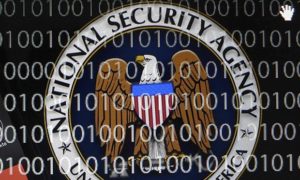Not too long ago, the internet was primarily used by most of us to do simple tasks such as checking our email. Now, it’s used for so much more. More complex and dedicate tasks can be carried out online and this of course requires much more sophisticated security.
It doesn’t matter whether you want to protect yourself from identity thefts, credit card fraud, or even government “spy agencies” – proper Internet security is a must.
Throughout the next few sections we’re going to expand on why Internet security is so important, we’ll then talk about Tor, VPN systems, and how they can help you stay protected online.
Why Is Internet Security so Important?
 Identity theft, credit card fraud, and government “spy agencies” are all very real threats that could occur when you’re doing something as simple as browsing the web. Having proper Internet security measures in place will protect you from all of the above threats and much more
Identity theft, credit card fraud, and government “spy agencies” are all very real threats that could occur when you’re doing something as simple as browsing the web. Having proper Internet security measures in place will protect you from all of the above threats and much more
The need for Internet security has become more apparent with the rise of companies that help us protect ourselves when we’re browsing the web. If there wasn’t a need for these services then all of these companies wouldn’t be in business.
A Quick Introduction to Tor
Tor is a very complex network system that helps you stay anonymous when you’re conducting your online activities, whether you’re just doing general browsing or work that requires the utmost in anonymity. Every byte of information that you send through Tor is encrypted with the help of several servers.
Setting-up Tor on your computer is as simple as downloading Google Chrome or another other browser. Simply head over to the Tor’s download page and install the right browser for your operating system.
You can download or here: https://www.torproject.org/download/download
Tor is a great way to keep yourself anonymous online, but using Tor’s network is not the only step that you should take. It would also be a wise decision to pair Tor with a Virtual Private Network (VPN).
An excellent resource I found on Tor, that every noobie should read, lists the 11 Do’s and Don’ts while using Tor.
It can be found here: http://www.hongkiat.com/blog/do-donts-tor-network/
Finding the Right VPN
If you’ve ever logged onto a public Wi-Fi network, you would have seen a message along the lines of “any information sent over this network is not secure”. This means that your credit card information, social media passwords, anything and everything, can be intercepted and placed into the wrong hands.
Even your home Wi-Fi network can be hacked; it doesn’t just stop at public networks. A VPN encrypts your data and provides you with a secure way of connecting to the internet. All the information you send through the internet is first sent through a private server, before going to its destination.
There are numerous myths surrounding the whole VPN industry. For example, many people believe that all VPN’s are the same as they do the same thing. However, this could not be further from the truth. Different providers offer different levels of security, different encryption standards and most importantly different policies on keeping logs. You see some providers log your usage while using the VPN which makes the use of the VPN pointless if you are concerned with anonymity as you are when using it with Tor. There have been cases where VPN companies where subpoenaed for user data that was suspected of doing illegal activity. In one such case, the biggest VPN comapany in the world “Hide My Ass” handed over the user logs to the authorities and the user was then prosecuted.
Luckily there are companies out there with strict “No Logs” policies, so it means that they keep no logs on users usage what so ever. This gives you the added security and peace of mind that you are truly anonymous while online and you are getting what you pay for. To even go one step further I would highly recommend you do your due diligence and find a VPN provider that owns and manages their own network. These such VPN providers are called Tier 1 VPN’s. Most people don’t know but almost all of the VPN providers out there just rent rack space and the servers from 3rd party hosting companies and manage it remotely from a computer. How would they know if the company they are renting the hardware from is not logging info or tampering with things? They wouldn’t. At least if the VPN company own and run the servers then if they say there are no logs then they can 100% prove it.
A great resource about combining a VPN with Tor is Jolly Rogers Security Guide For Beginners.
It can be found here: http://darkwebnews.com/help-advice/dark-web-beginners-security-guide/
And the VPN part here: http://darkwebnews.com/security-guide/combining-tor-vpn/
Closing Notes
As mentioned above, Internet security is extremely important and fortunately there are many ways that you can protect yourself online. One of the two most popular and most effective ways to do this is by using the Tor network, accompanied with a VPN.
If you want to check some VPN’s out then I have found a site here they review VPN’s and they are the only one on the net I could find that actually test them out with Tor.
You can find it here: http://topvpnsoftware.com/best-vpn-for-tor/

The advice and guidance provided above should help you get started with both Tor and a VPN.

 Internet anonymity has gained so much ground in the world that popular browsers Firefox and Google Chrome have an “incognito” browser. This lets you freely browse the internet without fear of detection, as long as it is not used on a communal network. The Darknet has gained popularity on both sides of the coin but it is up to the end user to take advantage of this Internet anonymity for positive actions.
Internet anonymity has gained so much ground in the world that popular browsers Firefox and Google Chrome have an “incognito” browser. This lets you freely browse the internet without fear of detection, as long as it is not used on a communal network. The Darknet has gained popularity on both sides of the coin but it is up to the end user to take advantage of this Internet anonymity for positive actions.

 Identity theft, credit card fraud, and government “spy agencies” are all very real threats that could occur when you’re doing something as simple as browsing the web. Having proper Internet security measures in place will protect you from all of the above threats and much more
Identity theft, credit card fraud, and government “spy agencies” are all very real threats that could occur when you’re doing something as simple as browsing the web. Having proper Internet security measures in place will protect you from all of the above threats and much more


 In 2013, Edward Snowden, a former CIA contractor, leaked classified details containing the extensive surveillance and spy activities conducted by the U.S. government through the NSA. His revelations indicated that the NSA was collecting phone records of millions of Americans, had unlimited access to the major email service providers such as Yahoo and Gmail, and also had direct access to Facebook, Skype, Apples, and YouTube servers, all of which handle millions of users worldwide.
In 2013, Edward Snowden, a former CIA contractor, leaked classified details containing the extensive surveillance and spy activities conducted by the U.S. government through the NSA. His revelations indicated that the NSA was collecting phone records of millions of Americans, had unlimited access to the major email service providers such as Yahoo and Gmail, and also had direct access to Facebook, Skype, Apples, and YouTube servers, all of which handle millions of users worldwide. To promote privacy and internet anonymity, search engines, browsers and other web services may result to embedding encryption and security into their services. For instance, Tor users may be familiar with Disconnect.me, the network’s choice of search engine, which was designed by former Google engineers. The browser is now available to mainstream internet users as a browser plugin. Working like a VPN, Disconnect.me blocks requests from web analytics companies, preventing them from tracking your activities on the internet.
To promote privacy and internet anonymity, search engines, browsers and other web services may result to embedding encryption and security into their services. For instance, Tor users may be familiar with Disconnect.me, the network’s choice of search engine, which was designed by former Google engineers. The browser is now available to mainstream internet users as a browser plugin. Working like a VPN, Disconnect.me blocks requests from web analytics companies, preventing them from tracking your activities on the internet.